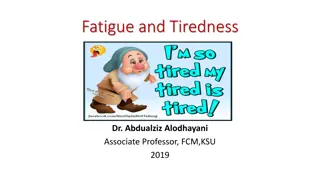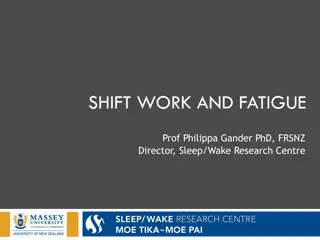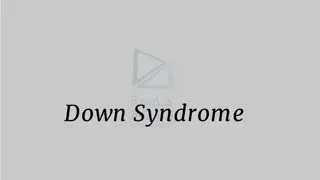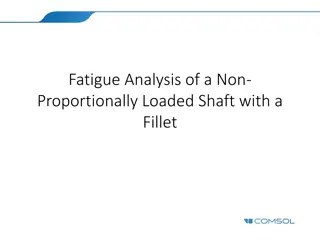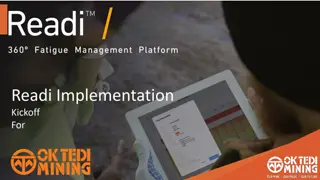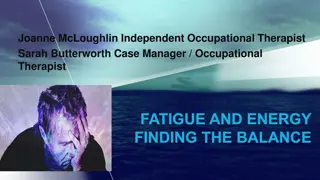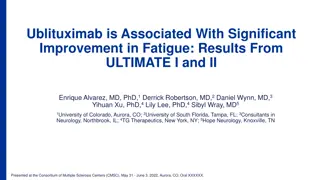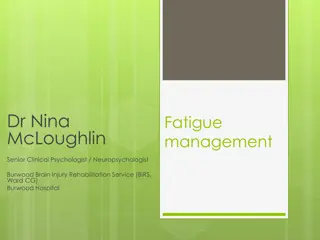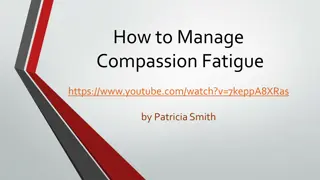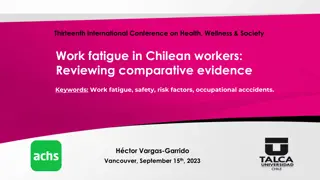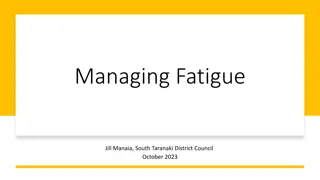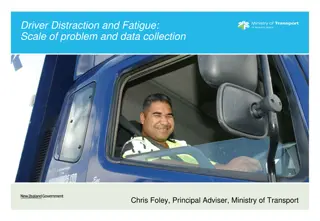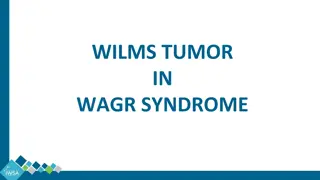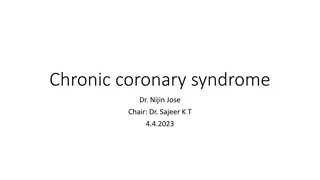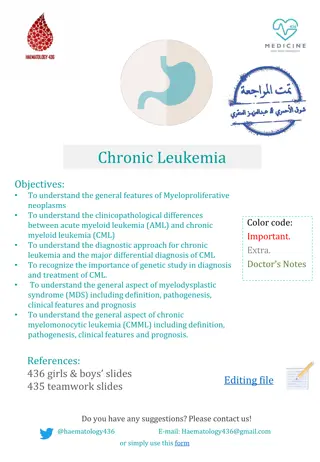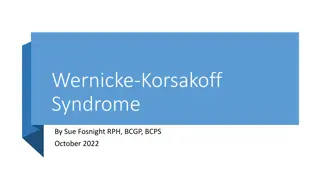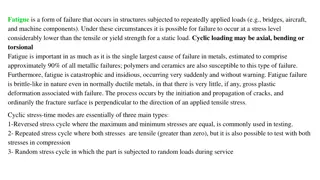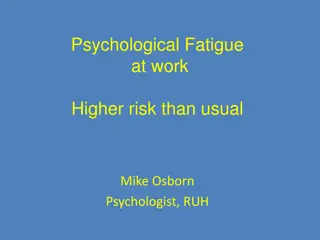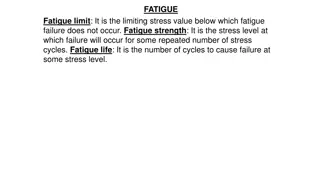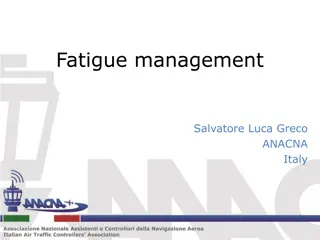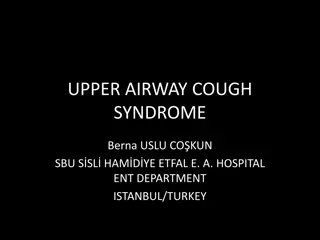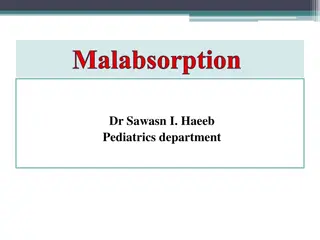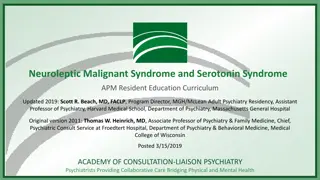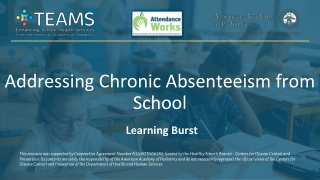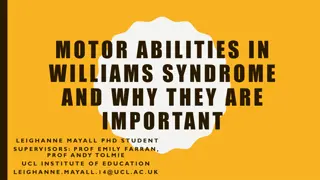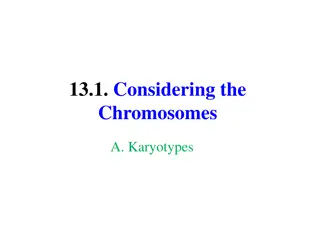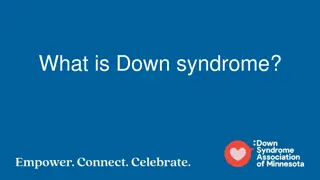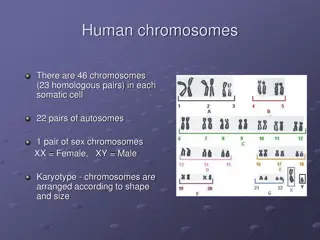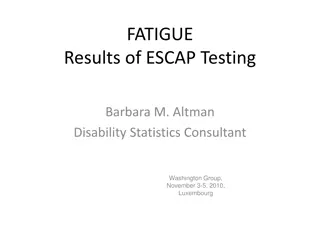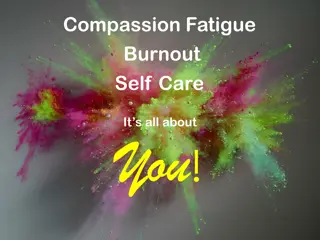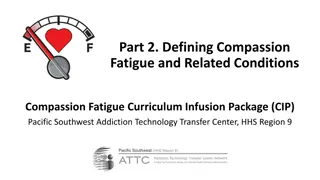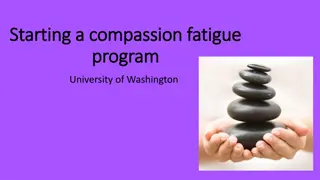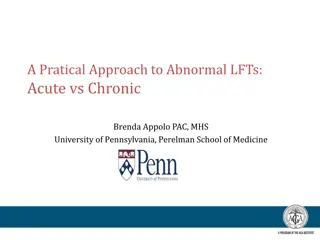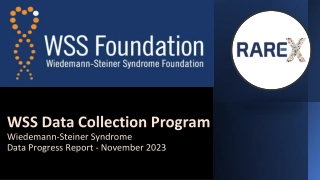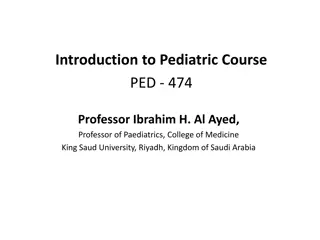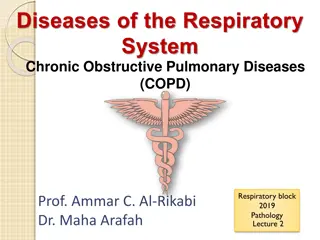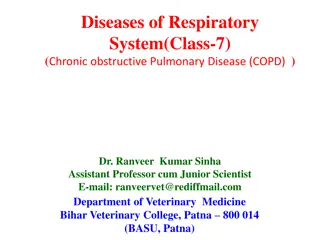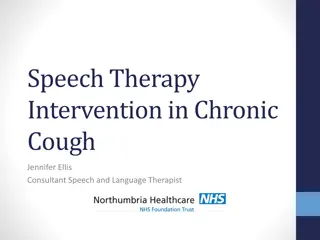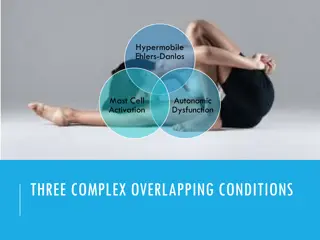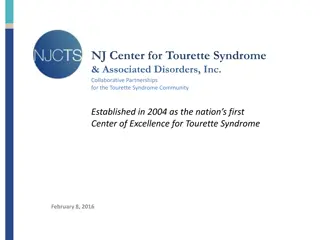Comprehensive Overview of Chronic Fatigue Syndrome in Pediatrics
Associate Specialist in Pediatrics, Dr. Isabel Burgess, provides a detailed insight into Chronic Fatigue Syndrome (CFS) in children. The diagnosis, symptoms, management principles, and impact on daily life are discussed, covering aspects from mild to very severe cases. Key signs such as debilitating fatigue, cognitive difficulties, and physical symptoms are highlighted, along with suggestions for suspected cases and confirmatory timelines. The content also delves into the demographic factors, heritability, and common presentations of CFS, shedding light on the challenges faced by pediatric patients suffering from this condition.
Download Presentation

Please find below an Image/Link to download the presentation.
The content on the website is provided AS IS for your information and personal use only. It may not be sold, licensed, or shared on other websites without obtaining consent from the author. Download presentation by click this link. If you encounter any issues during the download, it is possible that the publisher has removed the file from their server.
E N D
Presentation Transcript
DR ISABEL BURGESS ASSOCIATE SPECIALIST IN PAEDIATRICS
Definition / Diagnosis Symptoms / presentation Principles of Management
Debilitating fatigue, worsened by activity, not significantly relieved by rest Post-exertional malaise Unrefreshing sleep or sleep disturbance Cognitive difficulties, brain fog
Ability to engage in educational, social or personal activities is significantly reduced from pre-illness levels Symptoms not explained by other medical or chronic psychiatric illness Suspect CFS with symptoms persisting for 4 weeks, confirm after 3 months
Sore throats Painful swollen lymph glands Muscle discomfort or pain Headaches Dizziness, palpitations, fainting Nausea Temperature hypersensitivity Painful joints (without swelling or redness) Pain on touch Abdominal pain
Mild Still attending education but likely to have reduced hours, need to rest at weekends, will have reduced leisure activities Moderate Reduced mobility, restricted daily activities. Need to rest most days, usually not in education, sleep usually poor
Severe Minimal daily tasks only eg washing face, brushing teeth. Severe cognitive difficulties, spend most of time in bed. Often wheelchair bound, maybe unable to leave house Very Severe In bed all day, dependent on care including personal hygiene and eating.
Female (F:M 3:1) Lower Socioeconomic class Infection often viral eg glandular fever Heritability twin studies
Difficulty getting off to sleep Difficulty waking up Waking during the night Day time sleeps Unrefreshing sleep
87% adolescents, 77% primary school age Attention sustaining, switching Auditory learning Recall Fatigued by school work brain fog
30% adolescents, 43% primary school age Dizziness Fainting when standing Worsening of symptoms after hot baths Increase fluid intake, salt intake May consider referral for medication
40% experience significant nausea Abdominal pain Vicious cycle May develop eating disorder or obesity Eating little and often may help with nausea
Low mood and anxiety (38%) Fibromyalgia Migraine Irritable Bowel Syndrome Hypermobility/ Ehlers Danlos Syndrome POTS (positional orthostatic tachycardia) Eating disorders
Symptoms and severity will vary over time Can be worsened by triggers eg viral illness, over-exertion but may be no obvious trigger Flare-ups and relapses are to be expected and should be part of the management plan
The commonest cause of school absence lifelong consequences commonest cause of school absence 50% bedbound at some stage Social isolation, give up hobbies Parents taking time off work Prevalence 1-2:100
211 children with CFS (Crawley 2009) 62% attended school <40% of maximum possible 68% report CFS prevented them attending school at some stage of illness Mean time out of school 1 year
Recovery More likely to recover than adults Recovery Recovery or significant improvement in 54- 94% of those treated 75% attending full-time school at 6 months
RCPCH 2005 NICE 2007 & 2021
Initial appointment with paediatrician - diagnosis - initial advice Seen by Physiotherapist - review progress, update advice - yellow booklet Clinic review at least 4 monthly Hospital school liaison if required
Diagnosis based on history Investigations to exclude other causes Assess for associated conditions Avoid unnecessary investigations Do not delay diagnosis and management
Advice on activity / energy management and daily routine Sleep management Education advice / liaison Refer to physiotherapy Support group information
Recognise all types of activity physical, cognitive, emotional and social Achieve initial baseline of activity/energy Aim to gradually increase Avoid boom and bust May need to decrease at times of relapse
Same amount of sleep as peers Bring waking time forward slowly Avoid daytime sleeps if possible Bedroom for sleeping only Reduce stimulating activity before bed (screens) Bedtime routine Anchor wake up time Melatonin
Consider reduced timetable specific advice - based on % currently achieving - avoid PE - meaningful time off (primary vs secondary) - planned reduction rather than ad hoc - reduced number of GCSE subjects - remember social time is important
IHP Consider home tuition / online learning Information leaflet Letter for GCSE exam board
Avoid PE use time to rest or study Flexibility in homework deadlines Reduced timetable Encourage socialisation with peers Home tuition where appropriate Consider the physical environment, (busy, noisy, artificial lighting)- Medical Time Out Card to rest in quiet area Regular review of arrangements
Extra time Rest breaks Delayed exam start times Use of scribe Use of laptop Not sitting more than one exam per day Sitting the exam in an alternative venue


